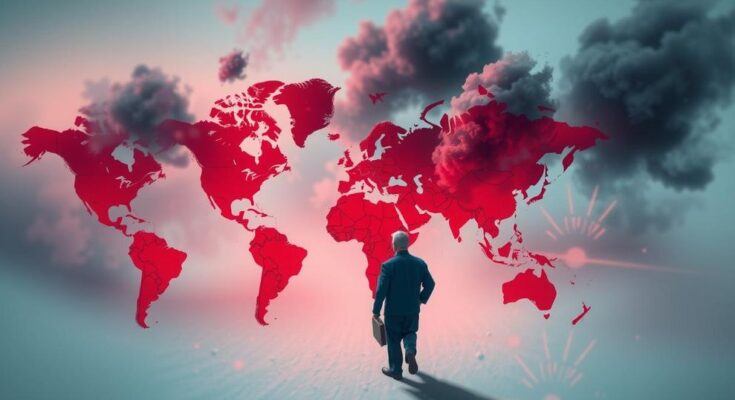The upcoming election year of 2025 poses significant challenges for many countries emerging from conflict and political unrest. With over 70 nations set to hold elections, various issues such as insecurity, repressive regimes, and infrastructural disarray threaten democratic processes. The importance of international support, strengthening electoral integrity, and addressing the foundational causes of conflict is paramount to ensuring credible elections that truly reflect voters’ will.
As we conclude the so-called “super-year of elections,” which engaged over 800 million individuals in nearly 80 nations, the electoral landscape for 2025 appears fraught with challenges. Approaching elections in various countries are overshadowed by ongoing conflicts, political violence, and instability. These conditions present both a critical opportunity and a potential pitfall; elections could either legitimize emerging authorities or exacerbate public discontent. It is essential for the international community to foster conditions that support credible election processes in these tumultuous environments.
Over 70 nations are poised to hold national elections soon, yet many face significant obstacles. Libya, for example, has not conducted elections since 2014 due to factional strife, while both Mali and Burkina Faso postponed elections indefinitely amid ongoing unrest. Furthermore, areas like Belarus struggle under repressive regimes that hinder democratic processes, as political suppression escalates ahead of elections lacking international oversight. This reality places these nations in a precarious position, where the act of voting could potentially inflame existing tensions rather than resolve them.
To navigate these challenges, critical strategies must be employed to cultivate environments conducive to holding free and fair elections. Central to this is establishing adequate security measures to safeguard all participants in the electoral process. Legal reforms may be necessary to rectify provisions that facilitate repression, ensuring a level playing field for all political entities, especially in contexts where incumbents enjoy disproportionate media access. Promoting diversity in media coverage is vital for informing voters about their options.
Furthermore, preventing digital interference is crucial; as election processes become more digitized, cybersecurity must be prioritized to sustain the integrity of information. Infrastructure also requires significant investment, particularly in nations emerging from violence or disaster. Countries like Haiti face substantial hurdles due to infrastructural damage exacerbated by conflict.
The human capital needed for effective electoral processes is also under threat. Conflict has displaced vast numbers of citizens, complicating efforts to recruit and retain capable electoral officials and ensuring broad participation. Addressing these foundational issues is necessary to mitigate dissatisfaction and unrest during the elections.
Given the complexities and heightened sensitivities in contexts marked by turmoil, there is an urgent need for timely support from the international community. Historical patterns reveal that external assistance can catalyze recovery beyond autocratic periods, enhancing democratic prospects. The benefits of fostering democracies resonate globally, cultivatingsustained international partnerships and enhancing the well-being of citizens.
In conclusion, as 2025 looms on the horizon, it will be imperative for stakeholders to expedite efforts in transforming electoral conditions. The ongoing turmoil must not preclude the aspiration for genuine democratic engagement; rather, it must serve as a clarion call to act with urgency and purpose, ensuring the rights and voices of all voters resonate in the upcoming elections.
The upcoming elections in 2025 follow a year characterized as a “super-year” due to unprecedented levels of voter engagement in numerous countries, reflecting a critical moment in global democratic processes. However, this rise in electoral participation coincides with a troubling rise in conflicts and political instability. Various nations due to hold elections are grappling with severe internal strife, which threatens the viability of democratic practices. The context for elections in 2025 does not merely reflect the number of elections but the circumstances under which they are held, which could either stabilize or further destabilize these regions.
The electoral processes in 2025 are poised to test the resilience of democracy under adverse conditions. With many nations facing profound instability, the necessity for strategic, credible electoral practices cannot be overstated. The readiness of the international community to intervene and support these elections may determine the trajectory towards lasting peace and democratic integrity. As challenges abound, so too do opportunities for reform and renewal, making it critical to act decisively and collaboratively.
Original Source: www.ifes.org




